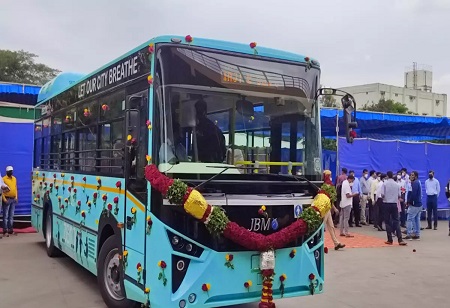Bengaluru will receive 1,500 electric buses as part of the Centre’s ‘Grand Challenge’ plan. The Convergence Energy Services Ltd (CESL), a PSU under the Union Department of Energy, recently told about a tender worth Rs 5,500 crore to introduce 5,580 electric buses (Rs 5,450 to one-story and 130 double-story) across the country.
Bengaluru is expected to get 1,500 e-buses under the scheme. While Kolkata will get the maximum number of electric buses (2,000), Delhi will also get 1,500, while Hyderabad and Surat will get 300 and Surat 150, respectively.
CESL officials said cities will be required to introduce electric buses between July 2022 and March 2024.
“This will help reduce city operating costs and eliminate bottlenecks in the purchase of electric buses by state transport companies.’’
However, BMTC officials are more inclined to buy e-buses. BMTC Managing Director V Anbu Kumar told, “We plan to introduce 1,500 12m AC-free low-floor buses over the next three years. We want to buy these buses instead of having a rental model. We have more experienced drivers and staff than private companies. He added that there was no demand for AC buses after Covid-19.
The 1,500 electric buses, BMTC will have a total of 1,890 battery-operated buses. The remaining 390 e-buses are 90 electric mini-buses (9 m long) and 300 electric buses (12 m long).
Of the 90 electric mini-buses introduced by NTPC-JBM under the Bengaluru Smart City funds, 60 have already reached the city. “The other 30 will arrive from JBM Auto’s Kosi Kalan plant near Mathura in Uttar Pradesh by the end of this month. "said an official.
NTPC-JBM will operate these buses for 10 years on a Gross Cost Contract (GCC) model at a rate of Rs 51.67 per km with electricity supplied for 180 km per day.
However, the 90 e-buses will not be operational until the end of February. “We planned to set up charging infrastructure at three depots: Kengeri, Yeshwantpur and KR Puram. The Kengeri charging station is ready and installation is progressing at Yeshwantpur.
